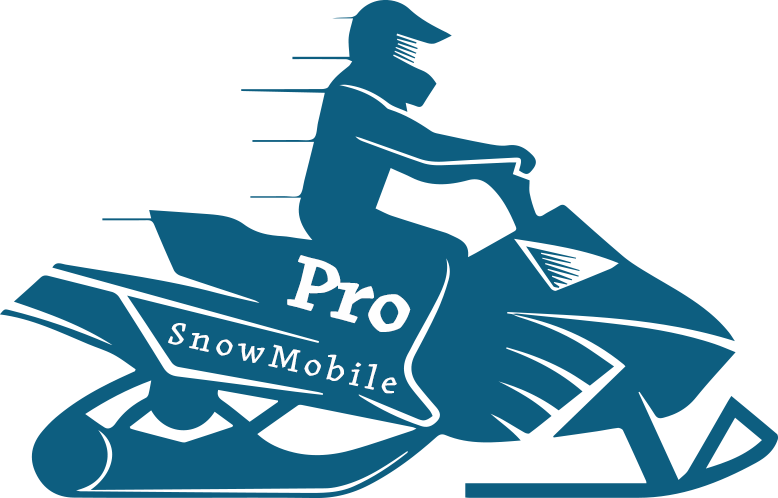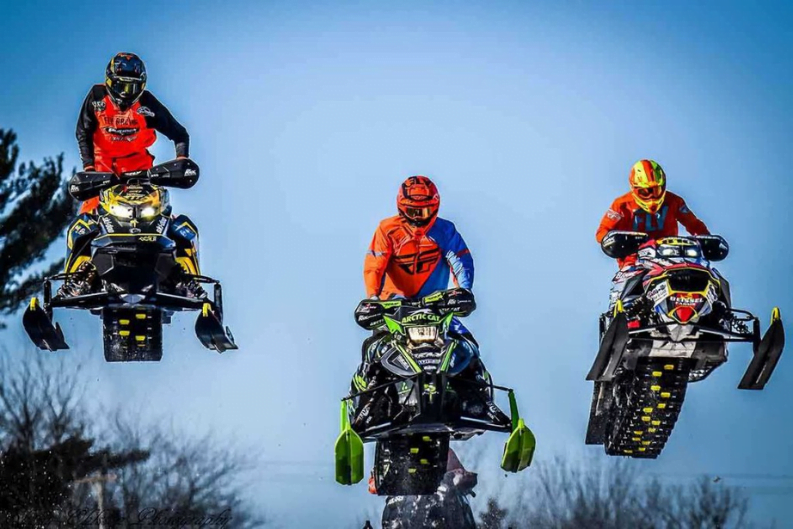Snowmobile jumping | Complete Guide
Snowmobile jumping, also known as freestyle snowmobiling. It involves launching a snowmobile off a ramp and performing various tricks in the air before landing back on the snow. The sport has grown incredibly since its inception in the early 2000s, with riders performing complex and daring maneuvers, such as backflips, front flips, and spins.
However, snowmobile jumping is not without its risks. You must have a high level of skill and experience to perform the jumps safely, as even the smallest mistake can result in a severe injury or even death. That’s why proper safety gear, such as helmets, body armor, and airbags, is also essential.
Jumping a snowmobile is difficult and you won’t necessarily try it your first time in the snow. It takes patience and practice to jump a sled properly.
Taking a flight can be the ultimate rush on a snowmobile but first of all, you have to learn this skill for a safer and more enjoyable outing.
Jeremy Hanke Snowmobile Athlete
Some words of advice to all of the budding riders out there.
He is a snowmobile athlete, safety and skills educator, avalanche technician, and curriculum specialist, and his words are respected in the snowmobile community and will most certainly save you frustration and physical pain if you are planning on learning to fly.
Jeremy Hanke has described it as a thrilling and challenging sport that requires a combination of skill, experience, and creativity. According to him, each jump is a unique experience that requires careful planning and execution to achieve the desired result.
He has also emphasized the importance of safety in snowmobile jumping and this includes wearing protective gear, such as helmets and body armor. Always make sure that the jumps are set up correctly.
How to Jump a Snowmobile
At some point in every snowmobiler’s life comes the urge to fly. The art of jumping is less about jumping and more about landing. Some riders learn quickly how to catch air, and some need quite a bit of practice.

We’ve gathered some valuable Points for you to learn before you start snowmobile jumping make sure you have the skill and patience to do this because it can be deadly dangerous for anyone who mismanages it.
1. Plan your Landing before Jumping
Planning your landing is the most important part of your jump selection. You should make sure that the jump is clear of any obstacles. One little bump or branch in the way can throw you and your sled away and cause a wreck.
Walk or ride around the jump and the landing area. Make sure there are no exposed rocks, stumps, or even icy bumps to get in the way. You have to ensure that the landing area isn’t flat. A soft slope will help absorb impact and reduce the risk of injury. Similar to ski jumps, landing on flat ground is to be avoided.
2. Distance after Landing
You will travel a fair distance after your jump, So the rule of thumb is to estimate twice the landing distance needed for your run out. This will give you enough time to slow down and maintain control of your machine without the threat of trees, rocks, or other obstacles that could potentially create a dangerous situation.
3. Throttle and Brake Control
The key to hitting a jump in control and landing where you want to is directly related to how well you can handle the throttle and brake.
If it’s your first time attempting a jump, do a couple of practice runs. Make a false approach towards the takeoff to judge the speed needed. If you have a jumpy throttle or brake control on these practice runs, you might not be ready.
“A hand full of the brake will most certainly send you flying over the bars, and a hand full of throttle will send the machine into a tail stand, then catapult you over the bars, Jeremy said”
You have to approach in a smooth that isn’t too fast or too slow. You also don’t have to push the throttle as hard as you can when you approach the takeoff point, as this will cause the front end of the sled to lift too high. Steady and in-control speed is vital in your approach.
4. Stay Balanced While Snowmobile Jumping
It’s time to keep your body balanced in anticipation of the moment of liftoff. You should have a firm grip on the handlebars and both of your feet are touching the rails with equal weight on each leg.
Always avoid any sudden turning maneuvers as you reach the initial point.
Not every rider has the same approach but When you’re about to take off if you stand up just a little bit, I think it helps you to balance yourself. Balanced hands and planted feet will prevent you from leaning toward one side or the other.
5. Stick the Landing
Once you are in the air, enjoy the ride! It will end quickly, so you also need to prepare to come back down to earth. You have to maintain a good balance while you are in the air. As you hit the snow, the snowmobile will naturally dig in because of a little thing called gravity. You need to push the throttle to avoid getting too pitted into the hole this causes.
The bomb hole is another essential point often overlooked. If you are having joyful snowmobile jumping with friends and learning to jump or drop, change your jumping areas tries so as not to land in someone else’s bomb hole. It is much better to land in fresh snow.
6. Practice Makes you Perfect for Jumping
Much practice and patience need to be executed when learning to jump or drop. Skills take time, so gradually increase the size and velocity of your jump attempts. Keep in mind that the professional riders you see on the internet or in magazines have spent years learning how to catch big air.

Catching air on different segments such as a cliff or a natural gap will have a different feel than a handmade jump. The basic elements of snowmobile jumping still apply. It is not a demonstration of courage to simply toss yourself off a cliff or jump. You have to learn with patience before trying it.
Conclusion
Snowmobile jumping is not an easy task to do. You have to take your time don’t rush it, the patience and experience will pay off, and you’ll be catching air soon enough. Safety is very important as I mentioned above. Do it right the first time, and have patience with your skills development. Your body will thank you for it!







